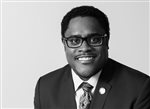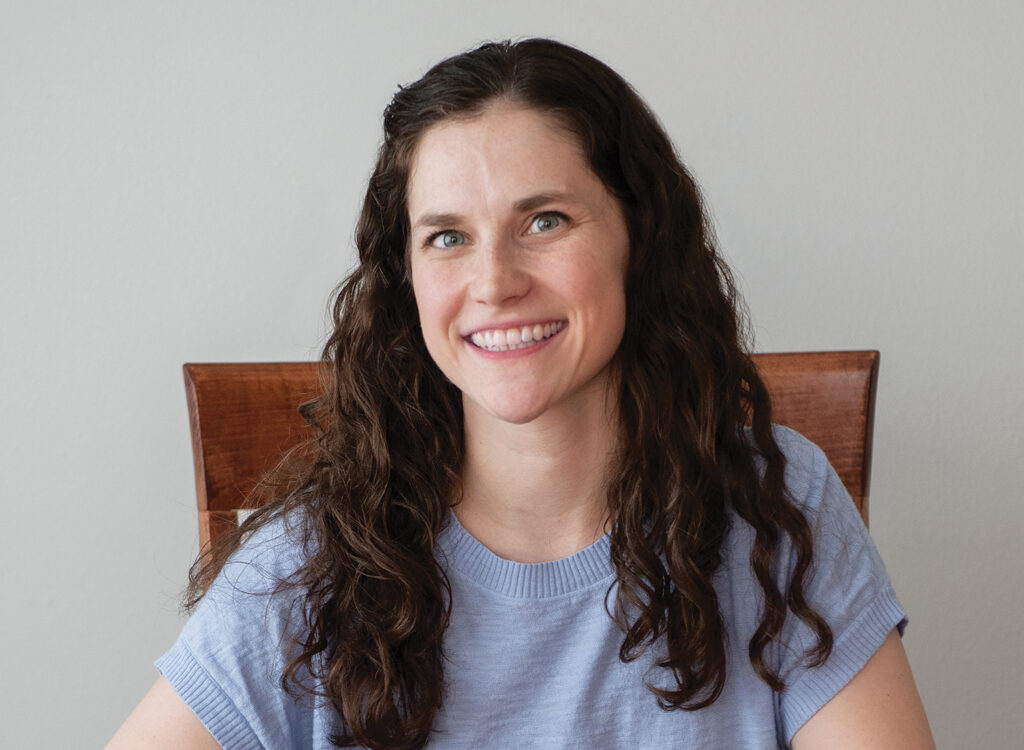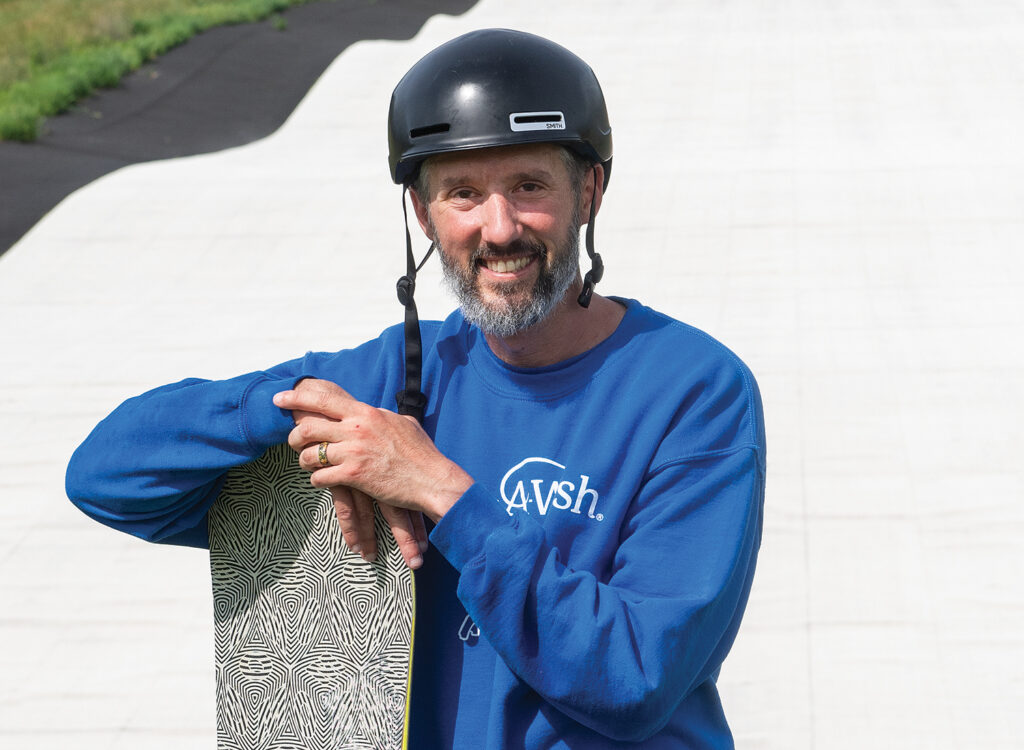A Closer Look: Chris Mitchell
President and CEO of the Iowa Hospital Association

JOE GARDYASZ Jan 5, 2022 | 2:38 pm
<1 min read time
0 wordsA Closer Look, Business Record Insider, Health and WellnessChris Mitchell was appointed president and chief executive officer of the Iowa Hospital Association in August and began his new role in mid-October. Mitchell, who was selected by the IHA Board of Officers and Trustees following a national search, was most recently executive vice president of advocacy and public affairs for the Michigan Health and Hospital Association. Mitchell began his career as an administrative fellow with the Michigan Health and Hospital Association in 2006; he held leadership roles in government relations, political affairs and advocacy, and was named to the executive vice president position in January 2019. He succeeds Kirk Norris, who recently retired after 34 years with the Iowa Hospital Association. Established in 1929, the Iowa Hospital Association is a nonprofit trade association representing 119 hospital and health system members to provide advocacy, education and information to its members. Based in Des Moines, the association is an allied member of the American Hospital Association and represents and advocates on health policy issues before the Iowa Legislature, Congress and regulatory agencies.
Are you originally from Michigan?
I generally say yes because it’s a little more complicated than that. I was actually born in New Jersey. My father worked for General Motors so we moved around quite a bit between the ages of zero and 10. So I also spent time in Ohio and Kansas and then moved to Michigan and essentially have been there since 1989. I grew up in a suburb of Lansing, Mich., called Okemos.
Do you have any medical background in your family, or what influenced you toward a career in hospital advocacy?
I like to say that if you talk to most people that work at a hospital association, it’s not something that you grew up saying like “I want to be a policeman or a fireman”; “I want to work at a hospital association.” My interest really was in politics. And I had wanted to work on a political campaign. And so I reached out to some individuals who were in and around politics who I knew, and one of them happened to be the former president of the Michigan Health and Hospital Association. And he essentially told me that that wasn’t really the best path, from his perspective, and he countered that I should start a yearlong fellowship working in the Government Relations Division of the Michigan Health and Hospital Association. So I took him up on that offer. I got hired into [the association] within three months of that yearlong fellowship into a full-time position. And that was just over 15 years ago. So now I’m here.
What do you consider some of your significant accomplishments with that association?
My key victories, from my perspective, really come from the public policy front. I think that obviously advocacy and public policy are paramount to providing the best service to the members. So if I think about specific victories that I’m extremely proud of — in 2008, it’s hard to believe this, but you could smoke pretty much anywhere in and around public places. So we were successful as part of a coalition passing legislation, which would ban smoking in indoor workplaces. … That really was my first legislative achievement, so that has a special place in my heart. Another one was [Medicaid expansion]. Much like the team at the IHA, [I was] a part of the group that pushed forward Medicaid expansion in 2013 … to work with lawmakers on both sides of the aisle and come forth with something that really benefits almost a million Michiganders. … So providing health insurance for a large chunk of the state is obviously something that I’m extremely proud of.
What’s your expectation of what your focus will be in your first year leading the association?
The overarching theme for me is [that] our strategy will be centered around ensuring access to health care to all Iowans. And there’s several paths that you will see us go down. I think one is dealing with workforce issues. I know that even in Iowa, health care isn’t the only industry right now that’s dealing with workforce issues. But as hospitals we’re in this unique position in which we have to provide services 24/7/365. And, from our perspective, the health care workers are tired. This has been probably the most grueling stretch of any of their careers, and we’ve got to find a way to bring in reinforcements. So that’s looking at what can we do with current programs to help retain workers, and what can we do to attract new workers to Iowa. A little bit further down the road is how do we get young people excited about working in health care? So there will be a multipronged approach around workforce, and we look forward to working with the Legislature, the governor and her team on solving this very complex issue. The complicating factor … is that we are competing with 49 other states in this.
As a Black person in this leadership position, how do you see your role?
From my perspective, it’s something that always remains front of mind to me, and I’m hopeful that the influence that I can have on the staff and our membership is to help them through that journey. I think the good news is the IHA was well on its way in their DEI efforts and certainly exploring the best ways that we can be helpful to our members as an association and in their efforts to improve under that umbrella of diversity, equity and inclusion. And so for me, it’s about first understanding that this is a different place than Michigan, and really talking with members and getting in the communities and understanding what diversity means in Iowa.
What civic involvement did you have most recently in Michigan?
I’m still a board member of the Todd Martin Youth Leadership program, which is a program that helps under-resourced kids in the Lansing area learn the game of tennis and also get help in the classroom. And really giving them a unique outlook at a sport that maybe they didn’t have access to. For those who don’t know, Todd Martin is a famous tennis player from the Greater Lansing area and he started a foundation there about 10 or 15 years ago. And the other board I spent some time working on for a lot of years was the YMCA of Michigan board, as well as their youth in government programs. Two things that I like are trying to help the next generation be the next set of leaders, and really, you can’t get folks interested in politics too soon, so it’s very important that we ensure we have a pipeline of people to run [for elected positions].
What’s an interesting book that you’ve read lately?
It’s called “First Friends.” It’s a book by Gary Ginsburg and we handed that out to a large subset of our membership, and I actually got to interview Gary as part of the IHA annual meeting. It’s really a fascinating book about the best friends of nine different presidents. So while it’s about politics, it’s about how people you’ve never heard of shaped the country in a fascinating way. And it really gives you insight into how people relate to each other, and [considering] do you have the right first friend around you? So while it’s based on politics, it’s got something in there for everybody, in my opinion.











